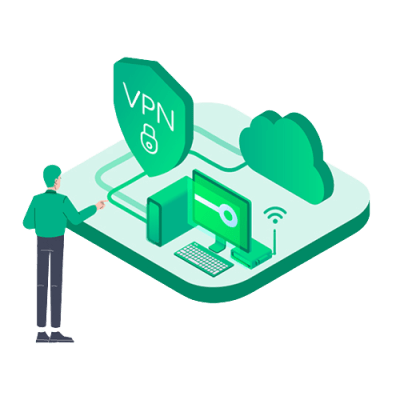In this digital age, where data breaches and cyber threats are commonplace, protecting one’s privacy has become a crucial aspect of online life. I rely on Virtual Private Networks (VPNs) for safeguarding my personal information while browsing the internet. Understanding the functionality and benefits of VPNs provides a solid foundation for this trust. Below, I will elaborate on why I find VPNs essential for enhancing privacy and offer practical tips for selecting and using a VPN effectively.
✅ Current deal: 🔥 Get NordVPN with up to 75% OFF! 🔥

The Basics of VPNs
A VPN essentially creates a secure tunnel between your device and the internet. This tunnel encrypts your data, making it nearly impossible for third parties—such as hackers, government agencies, or even your internet service provider (ISP)—to access or monitor your online activities. When I connect to a VPN, my internet traffic is routed through a server controlled by the VPN provider. This not only masks my IP address but also allows me to appear as if I’m browsing from a different location.
Enhanced Security Features
One of the primary reasons I trust VPNs is their robust security features. The encryption protocols employed by reputable VPN services ensure my data is protected from potential threats. Here are several encryption protocols I find particularly effective:
- OpenVPN: An open-source protocol that offers a good balance between speed and security.
- IKEv2/IPsec: Known for its quick reconnections and stability, especially on mobile devices.
- WireGuard: A newer protocol that promises better performance while maintaining a high level of security.
Each protocol has its unique advantages, but what matters most is that a reliable VPN provider uses strong encryption methods. This provides me with a peace of mind as I conduct sensitive transactions and share personal information online.
Bypassing Geo-Restrictions
Using a VPN also allows me to bypass geographical restrictions imposed by websites and streaming services. Many platforms restrict content based on the user’s geographical location. With a VPN, I can connect to servers in various countries, granting me access to content that might otherwise be unavailable in my region. This feature has expanded my options for entertainment and research, making my online experience richer and more enjoyable.
Privacy Protection from ISPs and Advertisers
Another key reason I trust VPNs is that they reduce the amount of data collected about my online behavior. My internet service provider can track my browsing history, and this information is often sold to advertisers or used to serve targeted ads. A VPN effectively obscures my browsing habits, preventing ISPs from logging my activity. By keeping my online behavior private, I maintain full control over my personal information.
✅ Current deal: 🔥 Get NordVPN with up to 75% OFF! 🔥
Improved Online Anonymity
While no solution guarantees complete anonymity, I have found that using a VPN significantly increases my online privacy. When I am connected to a VPN, my IP address is replaced with that of the VPN server, making it challenging for websites to track my real location. This layer of anonymity is beneficial, especially when accessing forums or conducting research on sensitive topics.
Trustworthy VPN Providers
Trusting a VPN service is crucial, and not all VPNs are created equal. Many providers claim to offer privacy protection but fail to deliver on their promises. I take the time to research and choose a VPN that prioritizes my privacy. Key factors I consider include:
- No-logs Policy: A credible VPN should have a strict no-logs policy, meaning they do not keep records of user activity.
- Independent Audits: I favor VPNs that have undergone independent security audits, as this demonstrates their commitment to transparency and user privacy.
- Jurisdiction: The location of the VPN company matters. Ideally, I choose providers based in countries with strong privacy laws, away from data retention regulations.
By thoroughly vetting VPN providers, I ensure that my privacy is in capable hands.
Tips for Using VPNs Effectively
To maximize the privacy protection advantages provided by VPNs, I follow these practical tips:
- Choose a reputable provider: Research and select a VPN service that has positive reviews and a proven track record for privacy protection.
- Enable the kill switch: This feature disconnects you from the internet if the VPN connection drops, preventing unintended data exposure.
- Use multi-factor authentication: This adds an extra layer of security by requiring more than just a password to access your VPN account.
- Stay updated: Regularly update your VPN software to protect against vulnerabilities and ensure you have access to the latest features.
- Be cautious with free VPNs: While they may appear appealing, free VPN services often have minimal security protocols and may sell user data to third parties.
- Utilize split tunneling: This feature allows me to choose which apps use the VPN connection and which do not, enabling flexibility based on my needs.
By implementing these tips, I enhance my online privacy and the overall effectiveness of my chosen VPN service.
Conclusion
In conclusion, my trust in VPNs stems from their ability to provide a secure and private online experience. With their encryption technologies, geo-unblocking capabilities, and protective measures against prying eyes, VPNs serve as vital tools for internet privacy. As I continue to navigate the internet, I remain vigilant about my privacy, and my VPN remains a steadfast ally in that endeavor. For anyone serious about safeguarding their online activity, a trustworthy VPN is an indispensable resource.
Affiliate Disclosure: By clicking on our links, we may earn commissions at no additional cost to you.